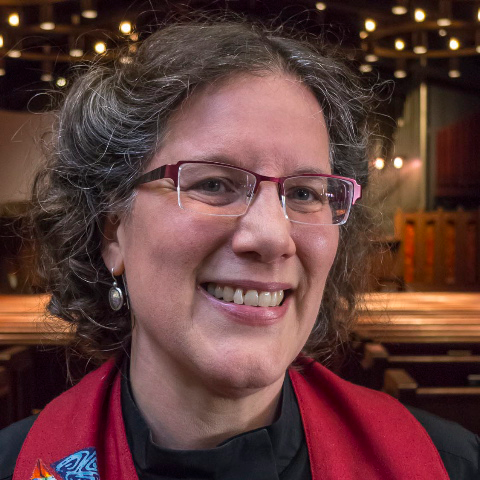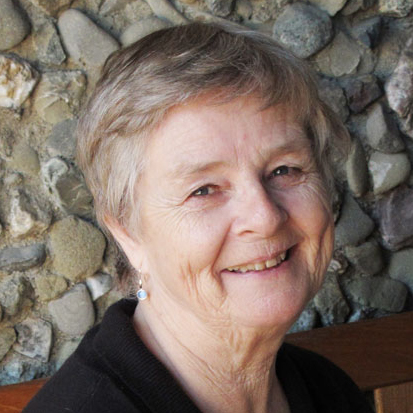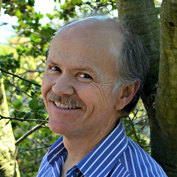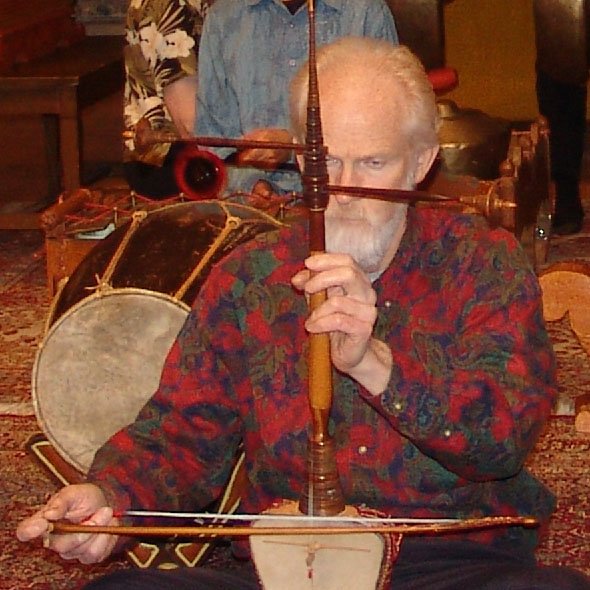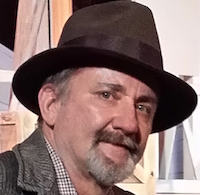Story Time for All Ages, Ann Riley
We should add to the story: In resisting our bullies, and in working together, we each have a unique gift to share.
Odon has a brother, Bodon, and he faced a pretty similar situation. You see, Bodon used his strength to march hundreds of miles out west, and he found a valley. Bodon was so strong that he took over that valley, declared it for himself, and drove out the little animals living there so he could grow food. He couldn’t grow food alone, though– he needed help. So he told the little animals that if they grow food, he will give them some. But as the years wore on he wouldn’t give them enough! The animals were always very hungry and tired from the hard work. Meanwhile Bodon kept the rest for himself– SO MUCH FOOD he kept for himself! More food than ever before seen in the valley. More food than Bodon himself would ever eat in a year, or even the rest of his life. But he kept it locked away because he was greedy. One spring all the little animals got together, and they made a plan. They made a plan that they would stop growing food for Bodon. Then they went to Bodon and said, “we won’t make more food until you share with us enough food so we don’t feel hungry or tired– so that we can live happily and healthily.” Bodon can’t grow the food alone, and all the stocks of food he amassed for himself would go rotten in a year. So he tried threatening the animals, he tried being a bully again. But the animals, like they did to his brother Odon, stood firm. So in the end he had no choice, and he shared the food that the little animals needed, and he still had more than enough for himself… A hundred years ago, that is what some of your great, great grandmothers and fathers did—they started a movement of what they called labor unions. Together, with these unions, they were able to defeat their bullies and get the share of money and food that they earned and worked for, enough so that they could raise happy and healthy families. The effects of their courage in standing up to the bullies are still felt by us today, and every year on the first Monday of September we celebrate their courage as Labor Day. On that note we’ll send you on to your classrooms, and I invite you all as you are willing and able to face the center aisle as we sing and bless our children on their way.
Reading:
#567, Marge Piercy, To Be of Use
I want to be with people who submerge in the task,
Who go into the fields to harvest and work in a row and pass the bags along,
Who stand in line and haul in their places,
Who are not parlor general and field deserters but move in a common rhythm when the food must come in or the fire be put out,
The work of the world is common as mud. Botched, it smears the hands, crumbles to dust.
But the thing worth doing well done has a shape that satisfies, clean and evident.
Greek amphoras for whine or oil, Hopi vases that held corn, are put in museums but you know they were made to be used.
The pitcher cries for water to carry and a person for work that is real.
Faiths for a New Economy
{podcast_episode 184}
From the earliest days I remember, I was always interested in money. Sometimes I even schemed about it. I was that kid with snacks for sale in middle school. In the summer I caught crabs and often sold them to neighbors. When we were both about 9, my friend Tony and I didn’t realize that it was maybe a little rude to target the owners of poorly kept lawns for our landscape services. Turned out it was the owners of well-kept lawns who were more interested in our offer. Whenever I schemed, my mom would gently mock me by jabbering, “money, money, money!” Just hearing that, you might think I would apply for business school, don a three piece suit and go for a career in a big company. Or maybe I would start a hole in the wall somewhere and try to make it on my own. Or maybe I would spend my evenings tending bar and my days trading stock with whatever meager earnings I could set aside. Maybe I would have been a good businessman, maybe I would have become a vulture of the weak, my own Odon.
But then, from the earliest days I remember, I was also interested in fairness. One of my earliest memories was of being surrounded by a dozen boys on bicycles and beat up, shortly followed in Kindergarten by having my face spiked into the head of a water fountain. Those two instances were just the beginning of a degrading decade of regular verbal, physical and emotional abuse. My bullies taught me a deep essence of violence.
Money and violence. Money and fairness. Fairness and violence. Quite related, aren’t they? Growing up, it didn’t take long to understand what was important. One day when I was 8, my mom and I were driving through West Baltimore. Block after block after block of chipped lead paint, empty homes, some abandoned so long that trees grew through the long failed rooftops. According to her, I simply looked up and said, “Mom, one day I’m going to be Mayor and fix those houses.”
I’m not going to become Mayor of Baltimore. But I do need you to hear a little of what it is that places me in delivering this message. I need you to know on a cursory level the source from which I find passion now; that it is a grown source, not a chosen one; it is a disposition from my very marrow. I as a person of faith am called simply, on the most fundamental level, to bring violence to rest and nurture and affirm life. For people of faith across the world, even before Jesus of Nazareth upturned the tables on Roman exploitation, almost every era of history has been enriched by their visions and actions toward ways of trade, production, taxation and sharing that embody a more peaceful and life-affirming civilization. And I don’t like calling people stupid, but it’s the economy. People of faith have inspired me to embrace theories of change that affirm our role as moral compass to the ways we work together every day. Today I hope to share with you a couple of their stories and invite you to consider the ways we as people of faith, as Unitarian Universalists can bring about the next economy.
Mohandas Gandhi ended the last economic era– colonialism. On March 2nd, 1930 began his Salt March from a small village called Dandi on the western coast of India. As he crouched down at the beaches to pick up a single pinch of salt, an action of production that was made illegal by the British Crown, millions across India broke the British industrial monopoly on that life-essential mineral. Gandhi’s civil disobedience that day was also the inauguration of what he called Constructive Programme. For Poorna Swaraj, or total independence, it was the ministry of his movement to create an alternative society of parallel institutions to British rule as a means of breaking them with peaceful transition. Built were schools, clinics, sanitation, and most importantly, production independent of Western import—he wrote, “village economy cannot be complete without the essential village industries such as hand-grinding, hand-pounding, soap-making, paper-making, match-making, tanning, oil-pressing… all should make it a point of honor to use only village articles whenever and wherever available.” [1] The Indian independence movement, in a nation that was then 352 million people, 43 million more than our country today and with far less individual wealth and resource, built a subversive economy of peace and liberation that, in the course of a generation, toppled the largest colonial empire the world has ever, and likely will ever see. Mohandas Gandhi’s solution to the injustices of that economic era was, in major part, to just start another party and not invite the British.
Back in North Carolina I attended Guilford College, which is a school founded on Quaker Tradition in Greensboro. A couple times during my time there our Council of Religious Organizations drove out to the western hills to visit a particular Amish community. There was a freshly built General Store that had books, clothes, a little hardware and a deli in the back that served sandwiches. We affectionately called it “Amish Subway.” On one of these visits we had lunch with the town minister, and I asked him whether he views the trade that his community does with non-Amish as a ministry. He said yes, and gave a beautiful response that I can’t recall verbatim, but in so many words he said that it is an opportunity to share peace with people.
I visited Amish communities in Virginia, North Carolina and Maryland, and while I claim to be no expert in Amish affairs or theology, I must at least expound of their milk. I grew up in a Swedish descendent household, so I think that’s why we always had about three gallons of milk in the refrigerator on any given day. I usually had about two, or three pints a day. You know … a mild dose. But when was it that Wall Street realized organic was the new thing? That people demanded milk without growth hormones or copious amounts of antibiotics, or some new direction, any direction, away from the horrors of factory farming? About 10, 12 years ago? What a boon of investment and industry changes, for the better and worse, when Wall Street found that out. But who didn’t make that discovery here in the United States? People who have stayed grounded in the Earth since Day 1, including but not limited to the hundreds of Amish communities across our country. They traded their peace with us. I do not hesitate to affirm the ministry of their trade in leading this country to rediscover the deeper truths in food.
We can tell a deeper truth.
Unitarian Universalists currently participate in economic justice primarily through advocacy initiatives. We push for living wage, corporate responsibility, environmental sustainability, and often consume responsibly. This approach has generated results, as Peter Morales says, “we punch way above our weight class.” But in this age of immense corporate power we are challenged to have sufficient voice to sustain momentum in places like Washington. Money is power. Even on the day money is no longer speech, money will still be power. All the while our appeals for change have been focused almost exclusively on public policy. I invite you to consider the limitations of our current approaches.
In living out the charge of our faith, in the confident realization of a more just and sustainable society, it may very well be our calling to minister with the constructive program of a new alternative economy. A new party we won’t invite those bullies to. A deeper story of truth that which many have been denied—a story that is anti-racist, anti-classist, that envisions society not as one where some wear blue collars and earn nothing while others wear white collars and own everything, but instead a story of a sky-collar economy where the vast majority are capable and entrepreneurial thinking-doers who each have the resources and opportunities to realize their potential. I invite you to consider that, on a fundamental level, we-will-continue repeated cycles of violent social struggle until the interest groups of labor and capital become the same. I believe the next step is in worker and community-owned enterprise that on a fundamental level merge together the worker and investment classes. Until we see that merging, not just greed, but violent greed will continue and adverse incentive will continue to mire us and create overwhelmingly complex systems of exploitation.
I’ve shared before that Dr. King said, “We must shift the arms race into a peace race.” He was calling for the true equality of education, stabilization and renaissance of America’s many ghettos and hyper-ghettos, and the investment of our society into projects that build a future of greater challenges and greater prosperities, including the celestial bodies beyond. Let us realize, let us make a vision for, even if we don’t have a fool-proof plan—for Beloved Economy, the engine of that Peace Race. We must realize the potential of cooperative communities that thrive together rather than foreclose apart; we must tell the story of a future vision that lacks corporate greed and imperialist foreign policy that costs us much more than benefits us; we must bring ministry with the generation-long conversation of what and how to do it. We must prove that vision with measurement and accountability. It is the dream of King and mine that we may always live into Beloved Community, not just when we have time off work.
I am challenged to find a more appropriate ministry for Unitarian Universalism. We have a rich history of building institutions, facilitating complex interfaith work, but most importantly we are already the people of the new economy. We are a faith of skill and conscience—one with thousands of engineers, executives, teachers and scientists. We are a people who carry o-type theology for the blood of all others. We are the second wealthiest religious group per capita in the United States. As individuals we are not of all wisdoms, competencies, warmth or wealth, but as a group we share a sum of strength that forms a compelling choice.
It’s not an easy choice to make. We will not upturn the injustices of this economy by simply building coop cafes and grocery stores. We will not fundamentally change the injustices of this economy by getting a little greener and a little kinder with every start up or raising the minimum wage. The peace race is a constructive program that includes housing, insurance, manufacturing, finance and telecommunication. The peace race includes going after violent economies in all facets of our society and arresting them with our work by providing compelling alternatives that actively enjoin and discern justice issues every step of the way. With the practice of this alternative economy we can unravel the lies of scarcity that we are told time and again by the bullies who think they benefit from denying people basic rights and opportunities.
Because we are a faith of relational covenant and not creed I believe Unitarian Universalism can embody an essential new richness of spiritual relation by creating an alternative economy that is home to us and wider identities. When Gini Courter stepped down as Moderator of the denomination, she asked us to create visions of what Unitarian Universalism will be in 50 years. I believe that it is possible by 2050 for thousands of UUs to be employed or have their homes built by the ventures of this new economy. I believe that we can be a core leader to a long term nationwide interfaith campaign to create a constructive program of parallel institutions against the industries that most contribute to economic and environmental exploitation, and that campaign will involve hundreds of thousands beyond ourselves. I am not alone as a minister or a layperson in holding such a vision, and I simply ask you, that when the time is right for us to call upon each other, that you lend your support to this ministry. You already have in supporting Beloved Café, and they are just the beginning. When the time comes, you I ask consider selling your house and buy into a community-owned housing development, or take your next job in a community-owned health insurance company, or simply channel your investments to the economic missions that we as people of faith set out to facilitate, even if it’s not for the likes of cooperatives, because who knows how the new economy will emerge.
What we can do now is start the dream and the conversation. We can tell a deeper truth. In this generation we can plant seeds that grow into what could be the next era of society—from colonialism, to neo-liberal capitalism, to globalization, to perhaps the participatory economy. It is a natural and worthy calling of our movement to plant those seeds and realize how the values we hold sacred are embedded in work and in worship. To find and know peace every day, to make and share love every day, let’s get to work. Amen.
Benediction:
As we extinguish our chalice we join hands to remind ourselves that we are all connected. And in that connection, that consciousness, time and again we are reminded that our world is experiencing an era of incredible greed, pain and environmental destruction. Let us sense and affirm the agency between us to calm that greed, heal that pain, and leave nature to do the things it must. May we explore more of the work that our brothers and sisters and we ourselves do, and enliven our mutual faiths to the betterment of those works for healthy and happy families across any border. May we all find fullness and belonging in what we do to sustain the cycle of living life. Blessed be, amen.
Turn to your neighbors!
[1] M.K. Gandhi. Constructive Programme: Its Meaning and Place. 1948.







